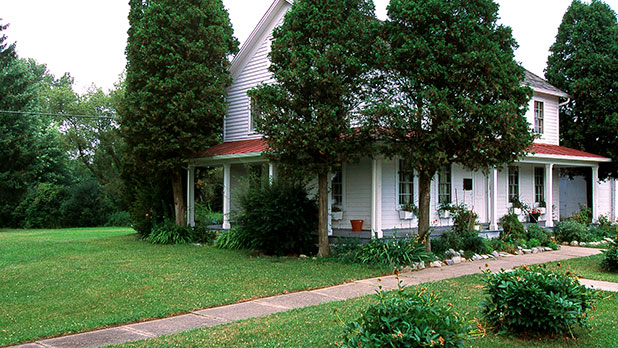
With more than 24 Underground Railroad sites and deep historical ties to leaders like Frederick Douglass and Harriet Tubman, New York is home to profound moments throughout Black history. Discover the stories during Black History Month this February (and every month of the year) at these famous sites.
National Abolition Hall of Fame and Museum
When a group of 600 abolitionists—the NYS Anti-Slavery Society—were left with nowhere to meet in 1835, wealthy landowner Gerrit Smith invited them to assemble at Peterboro Presbyterian Church. The former church, now the Smithfield Community Center, currently houses the National Abolition Hall of Fame and Museum, a portal into the dangerous lives of abolitionists living and fighting for freedom in the nineteenth century.
Niagara Falls Underground Railroad Heritage Area
The new-in-2018 Niagara Falls Underground Railroad Heritage Area shares the stories of freedom seekers and the abolitionists who helped them.
Fenton History Center
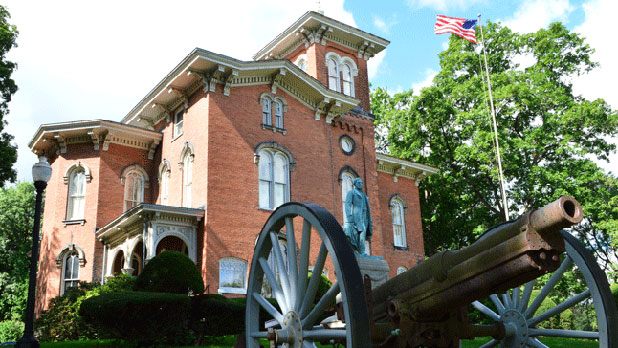
Visit the Fenton History Center in Jamestown to learn about the key role Jamestown and Chautauqua County played in the Underground Railroad, including the story of escaped slaves disguised as women.
Harriet Tubman National Historical Park
Head to Auburn to visit the home of Harriet Tubman, known famously as the Underground Railroad "conductor." She was also a humanitarian who stood for both African American and women's rights.
John Brown Farm State Historic Site
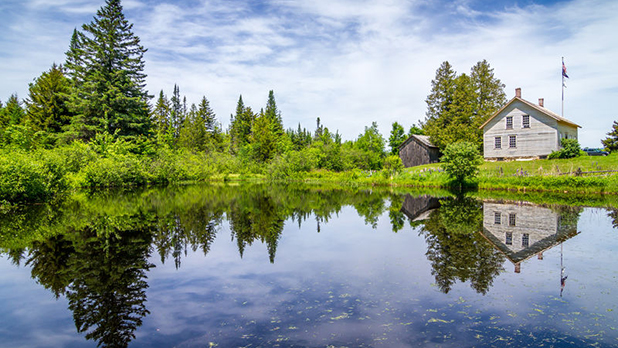
Lake Placid is the resting place to the ardent 19th-century abolitionist John Brown, best known for his failed attempt to catalyze the liberation of slaves in the South. Brown was also a "conductor" on the Underground Railroad and helped freed slaves develop their own farms in New York. Visit his home and final resting place, the John Brown Farm State Historic Site, where you can get a refined sense of this important piece of our history.
Rochester Museum & Science Center

In Rochester, you'll find the "Flight to Freedom" exhibits in the Rochester Museum & Science Center. These interactive exhibits reveal the story of influential African American abolitionist and writer Frederick Douglass as well as other formerly enslaved freedom seekers such as Austin Steward, Harriet Jacobs, and Reverend Thomas James.
Matilda Joslyn Gage Home
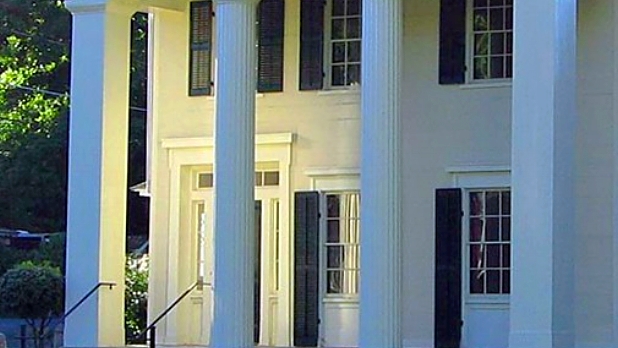
Stop by the 1816 Farmington Quaker Meetinghouse, a center for equal rights, and the Matilda Joslyn Gage Home in Fayetteville, a museum devoted to furthering the progressive ideas of suffrage leader and abolitionist Matilda Joslyn Gage.
The Colored Musicians Club Museum
Visit the oldest continuously run African American musicians club in the US, the Colored Musicians Club Museum in Buffalo. Founded in 1935 and full of interactive exhibits, the museum shares the stories of the jazz legends who performed there and the legacy they left behind.
Philipsburg in Tarrytown

For a glimpse into the reality of what slavery was like in the north, visit Philipsburg in Tarrytown, an 18th-century working farm.
Jay Heritage Center
Visit John Jay's estate, now the Jay Heritage Center in Rye, where you can enjoy educational programs in history, social justice, and environmental stewardship. Jay, an early advocate of emancipation and founding father of the United States, pushed for the abolition of slavery in New York State.
African American Museum in Hempstead
Visit the African American Museum in Hempstead, a place that helps promote the appreciation of African American culture.
Joseph Lloyd Manor House
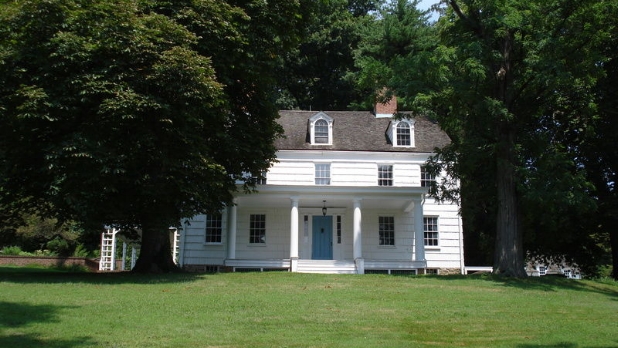
Take a literary walk through history at the Joseph Lloyd Manor House in Lloyd Harbor. The home-turned-museum is where Jupiter Hammon, the first published black poet in the US, lived and wrote.
King Manor
Visit King Manor in Jamaica, Queens, a museum dedicated to preserving the historic home and legacy of anti-slavery politician Rufus King. A member of the Continental Congress and framer and signer of the Constitution, King was perhaps most known for his radical anti-slavery speeches to the Senate before the Civil War.
The Studio Museum in Harlem

Get a glimpse of the past 200 years of black history at the Studio Museum located in the heart of Harlem, which houses works by African artists from around the world.
Apollo Theater

Visit the Apollo Theater in Harlem where some of the best African American talents of the twentieth century have performed. Since the 1930s, it has been the premiere venue showcasing performers such as Ella Fitzgerald, Michael Jackson, and Stevie Wonder. Afterward, head to Queens to see Louis Armstrong’s House Museum.
Explore Path Through History and share your New York State adventures with us on Instagram and Twitter with #iSpyNY and tag us on Facebook!
 NEWSLETTER
NEWSLETTER

